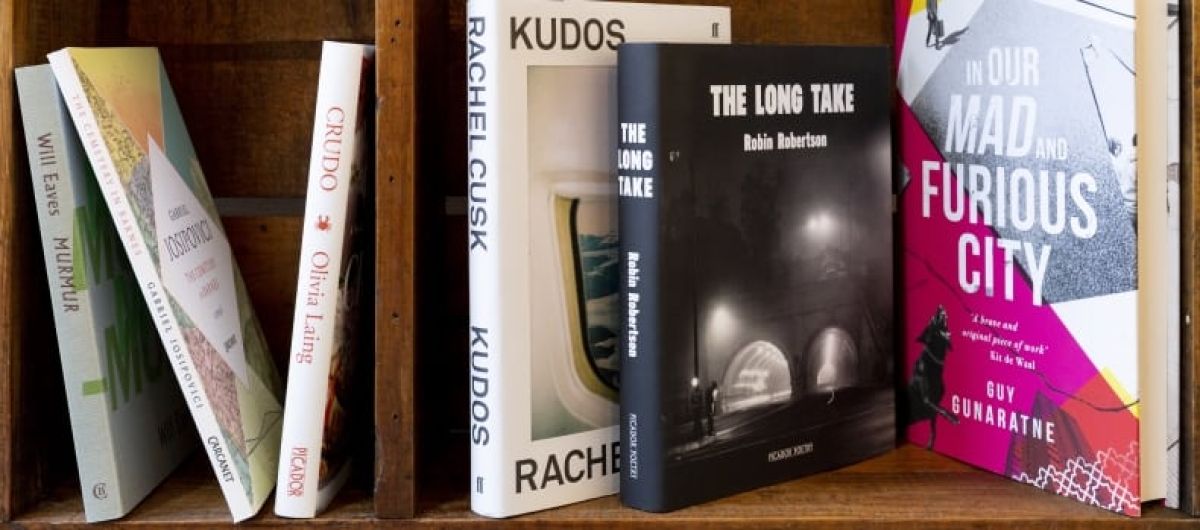The Goldsmiths Prize shortlist “breaks the mould”
By Devi Joshi

Established in 2013, The Goldsmiths Prize aims to celebrate and reward fiction which “breaks the mould or extends the possibilities of the novel form”. With an annual prize of £10,000, and an impressive list of past winners, the winning novel must be a well-crafted piece of dynamic long-form fiction. One of my favourite novels, Eimear McBride’s “A Girl is a Half-formed Thing”, published by independent publisher Galley Beggar Press, was the recipient of the first award in 2013. The emotive, uncompromising and heart-breaking prose of McBride, full of disaster and transgression, is a lot to live up to. But after 5 years of selecting innovative works which really are “genuinely novel,” I was excited to read the 2018 shortlist and was not disappointed.
Robin Robertson’s verse novel, “The Long Take”, is a noir narrative following the life of Walker, a D-Day veteran with PTSD. Unable to return home to Nova Scotia, he moves around America’s great cities, from New York to Los Angeles and San Francisco. Desperate to piece his life together, America falls apart around him. The novel delves deep into modem America’s anxieties, and promises to be a “work of thrilling originality”.
“Murmur” by Will Eaves takes its inspiration from the arrest and legally enforced chemical castration of mathematician Alan Turing. Described as a “rare achievement”, the novel relays the account of a man’s response to physical and mental stress with love, honour and an “unsentimental curiosity” about our perceptions of ourselves and the world. The opening section of “Murmur” was also shortlisted for the 2017 BBC National Short Story Award.
Described by the Guardian as ‘one of the very best writers now at work in the English language’, Gabriel Josipovici’s “The Cemetery in Barnes” follows three separate plots whose relationships and time-scales are woven into a single, intense story. Of the novel’s three voices, the voice of a translator who moves from London to Paris to Wales is the main one, the voices enhanced by a chorus of friends and acquaintances. The most “literary” of the shortlist, the novel is charged with an awareness of “all the threats to culture and happiness.”
Rachel Cusk’s final instalment of her trilogy, “Kudos”, is the perfect ending to “one of the greatest achievements in fiction.” A book of conversations between the main character, Faye, and the people she meets on her trip to Europe tap into some of the most human questions people ask. With the conversations ranging from art to love, justice and politics, the novel deals with huge themes with acute insight. Cusk’s first two instalments were both nominated for the Goldsmiths prize in the past- maybe third time’s a charm?
“Love during the apocalypse” is how Olivia Laing’s novel “Crudo” is described, and with her main character Kathy preparing for her wedding in a Brexit-voting UK, with Trump over in the US, insistent on starting World War Three via Twitter, the phrase is apt. Charting the horror-filled summer of 2017, Laing’s novel remains funny and empathetic through the worst of times, with Kathy the “commitment-phobe” writer really being thrown into the deep end.
And last but not least, we have “In Our Mad and Furious City” by Guy Gunaratne. After the killing of a British soldier, riots spread across the city, and three boys – Selvon, Ardan and Yusuf – dream of a future “beyond the ends” they call home. Exploring the approach of danger in a city at the point of exploding, Gunaratne handles such raw material with “a sophisticated treatment” whilst not limiting the voices of the novel in any way.
You can catch both Guy Gunaratne and Olivia Laing at the Manchester Literature Festival this October.







